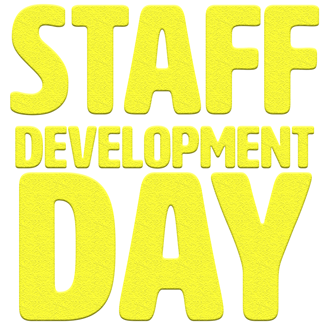Safeguarding
At Valley Invicta Primary School at East Borough, we are fully committed to safeguarding and promoting the welfare of all children and expect all staff, Governors and volunteers to share this commitment. We have a number of polices and procedures in place that contribute to our safeguarding commitment. Sometimes we may need to share information and work in partnership with other agencies where there are concerns about a child's welfare.
Our Designated Safeguarding Leads (DSL) are:
- Mrs Lydia Vincett (Head of School and DSL)
- Mrs Meg Covey (Deputy Headteacher and Deputy DSL)
- Mrs Sally Seymour (Assistant Headteacher, Year 6 teacher and Deputy DSL)
- Mrs Stephanie Clarke (Family Liaison Officer and Deputy DSL)
- Mrs Vickie Gocmen (SENCO and Deputy DSL)
- Mrs Charlotte McClymont (Year 2 teacher and Online Safety Deputy DSL)
- Mrs Gemma Heckels (Foundation Teacher and EYFS Deputy DSL)
- Mrs Charlotte McGivern (Governor responsible for Safeguarding)
- Mrs Sarah Pinagapany (SRP Teacher and Deputy DSL)
You can see our safeguarding poster here.
The school has adopted the definition of the term ‘Safeguarding’ used in the Children Act 2004.
Safeguarding and promoting the welfare of children is defined for the purposes of this guidance as:
- Providing help and support to meet the needs of children as soon as problems emerge
- protecting children from maltreatment, whether that is within or outside the home, including online
- preventing the impairment of children’s mental and physical health or development
- ensuring that children grow up in circumstances consistent with the provision of safe and effective care
- taking action to enable all children to have the best outcomes
The school’s safeguarding arrangements cover all aspects of life at school, in particular addressing these issues:
- health and safety;
- bullying;
- other harassment and discrimination, including racism;
- physical intervention;
- meeting the needs of pupils with medical conditions;
- behaviour
- off-site visits;
- intimate care;
- internet and e-safety;
- physical security of the school site;
- recruitment and vetting of staff and visitors to the school site.
Read our Safeguarding and Child Protection Policy here.
Read our Child-Friendly Safeguarding Policy here.
You can read the Keeping Children Safe in Education document here.
You can read our Safeguarding Newsletters here.
The DSLs receive regular update training from Kent County Council and all staff at East Borough receive safeguarding training each year led by our team of DSLs. The training covers topics such as signs and symptoms of abuse, how to record and report incidents, how to help pupils stay safe online, Female Genital Mutilation (FGM), Prevent (radicalisation and extremism), gang culture and Child Sexual Exploitation(CSE).
If you have any concerns about the welfare of a child at our school, please contact the school office in confidence and ask to speak to any of our DSLs.
Telephone: 01622 754633
office@eastborough.viat.org.uk
In periods of time when the school is closed, you may find yourself in need of safeguarding advice. If you have an immediate safeguarding concern, please phone 999 in the first instance for support.
You can also complete a Front Door Referral form via Kent Children's Socia Services if you are concerned about a child or adults welfare.
If the safeguarding advice that you require is not urgent, please draw on one or some of the services listed below. These services have been used by thousands of students and families and have a proven track record in offering support when it is most needed.
Links for Parents
Kent Together helpline can be accessed 24 hours a day via the Kent County Council website and via the phone: 03000 41 92 92. This provides urgent support for residents facing cost-of-living hardships.
For any family or child is unsure what support they require, there is a central Single Point of Access phone number - 0300 123 4496 - which provides the opportunity to discuss the types of support that might be appropriate. This is also the number to call if a child requires urgent mental health support.
You can also book an appointment through your GP to support with any mental health difficulties that your child may be experiencing. GPs will need to complete the Front Door referral form.
A new text service has been introduced by ‘SHOUT’ and the Crisis Text Line, as part of the Kent and Medway “Release the Pressure” campaign. Anyone, of any age, who requires immediate mental health support just needs to text the word “Kent” or “Medway” to 85258. This service is available 24 hours a day, 7 days a week.
Positive Approaches to Managing Behaviour at Home
As children develop, it is natural for them to explore the boundaries that are around them. This happens both in school and at home. At times, this can lead to moments of challenging behaviour. The leaflets below are prepared by partner agencies and give useful comments that parents can use to help shape their approach at home.
Physical Chastisement at Home
Physical chastisement refers to the use of physical force to discipline a child. This can include actions such assmacking, spanking, slapping, or hitting with an object. It may also involve other forms of physical punishment like pinching, pulling, or making a child endure stressful positions for extended periods.
Legal Guidance on Physical Chastisement
In the United Kingdom, the law surrounding physical chastisement is very clear. It is illegal for a parent or carer to use physical punishment that causes any form of injury to a child. This includes leaving marks, bruises, or any other physical harm.
Educate.Against.Hate
This website gives parents, teachers and school leaders practical advice on protecting children from extremism and radicalisation.
Prevent Referral Form
If you are concerned that someone is being drawn into terrorism or radicalisation, report it to the police for advice or referral to the voluntary Channel programme. Immediate concerns should be reported via 999 or the Anti-Terror Hotline at 0800 789 321. Non-urgent referrals can be made through the National Prevent referral form.
The National Police Prevent Advice Line: 0800 011 3764
Links for Children and Parents
Fearless is a website for young people (upper KS2) to access non-judgemental information about advice about crime and criminality. You can also pass on information about crime 100% anonymously.
CEOP
If you have any concerns related to the online safety of your child, the designated team for Child Exploitation and Online Safety team (CEOP) is the best port of call.
Childline is a free, confidential 24/7 service in the UK for people under 19, providing support for any issue, inclduing bullying, abuse and mental health. Children and adults can access this on: 0800 1111
Report Harmful Content can be used in addition to the CEOP reporting tool to help report any harmful content across all online platforms. They offer advice for a range of different websites and applications and can support young people and parents through the process of reporting any problems. They also offer guidance on what is considered to be harmful content and the different types that young people may come across.
For more generalised support about keeping children safe and resources and advice, you can visit the National Society for the Prevention of Cruelty to Children (NSPCC).
Report Abuse in Education helpline
The Department for Education has commissioned the NSPCC to establish a dedicated independent helpline for people who have experienced abuse in education. The Report Abuse in Education helpline comes after a high number of anonymous testimonials were submitted to the Everyone’s Invited website, documenting abuse in all types of schools, colleges, and universities.
The helpline went live on 1 April and will provide both children and adults who have experienced sexual abuse in schools with support and advice, including onward action such as contacting the police if they wish to. The helpline will also provide support to parents and professionals. Anyone who gets in touch through this dedicated helpline will also be signposted to other relevant support services available, including Childline, which provides ongoing support and counselling to children and young people.
The dedicated and confidential NSPCC helpline – Report Abuse in Education can be reached on 0800 136 663 or by email at help@nspcc.org.uk.
Online Safety
At East Borough, we don’t tolerate bullying of any description. Here's some advice for children and young people on how to deal with online (cyber) bullying:
- Always respect others on and offline – think about what you say online and what images you send/post and be aware that online messages can easily be misunderstood.
- Remember that anything you publish online can be made public very quickly and you will never be sure who may have seen it. Once something is posted you can lose control of who sees it and where it may end up.
- Treat your password like a toothbrush – never share it with anyone and only give your personal information like mobile phone number or email address to trusted friends. Be careful to log out of sites and apps if you share your device with others.
- Learn how to block or report online bullies or anyone behaving badly and don’t retaliate or reply to nasty messages. This is usually what the bullies are trying to get you to do. Remember that if you reply with a nasty or unkind comment then it could get you into trouble too.
- Always make sure that you save evidence of online (cyber) bullying by saving or printing out text messages, online conversation, pictures etc. Try and include as much information as possible, such as web addresses (URLs), contact numbers, user names, times, dates, locations.
- Always make sure you tell someone if you are being bullied online:
- an adult you trust or contact Childline
- The service provider e.g. website, app, mobile phone provider etc where the bullying is taking place
- If a crime has been committed or someone is at risk of harm then contact the police
- If you see online (cyber) bullying going on, then support the victim and REPORT it to the website or your school, don’t be a bystander and say nothing otherwise you become part of the problem.
Online Safety Poster for EYFS and Year 1
Online Safety Poster for Years 2 and 3
Online Safety Poster for Years 4, 5 and 6
Digital Leaders' Guide to Roblox
NSPCC Speak Out, Stay Safe Programme
Every academic year the children take part in the NSPCC’s "Speak out. Stay safe" programme. NSPCC provide virtual assemblies for both key stages to help our pupils have the knowledge and understanding they need to stay safe from abuse. This is a nationwide programme for every primary-school-aged child in the UK and Channel Islands. They use their friendly mascot Buddy to help children to feel empowered – knowing how they can speak out and stay safe.
If you would like any more information about the NSPCC's "Speak out. Stay safe" programme, including frequently asked questions, you can find it on the NSPCC website nspcc.org.uk/schools
The NSPCC’s work in schools will help encourage conversations about staying safe – and they have a number of child-friendly materials to help you carry on the conversation afterwards. That includes ‘The Underwear Rule’, a simple way for parents and carers to help keep children safe from sexual abuse – without using scary words or even mentioning sex.
The guide uses the rules of PANTS to teach children that their body belongs to them and them alone. You can find out more and download the free resources at nspcc.org.uk/pants
If you’d like to know more about the NSPCC’s work, or take a look at the wide range of information and advice which is available for parents and carers, please visit their website https://www.nspcc.org.uk/preventing-abuse/keeping-children-safe/
Young Carers
Is your child a Young Carer? For more information about the school's provision and how to refer your child for Young Carers, click here.






















